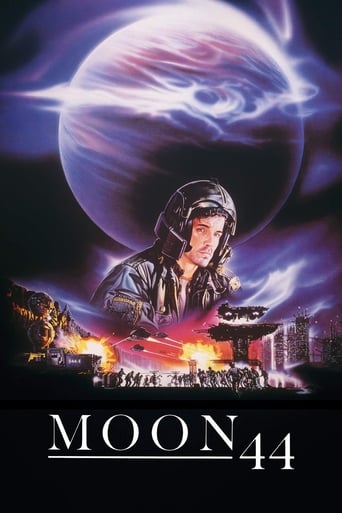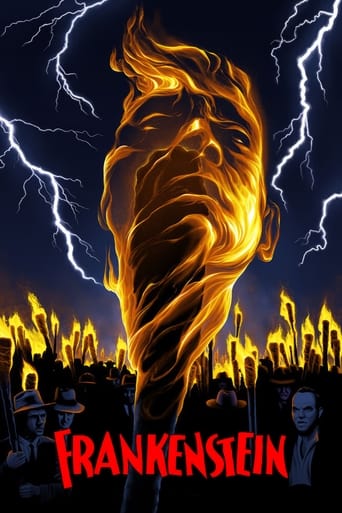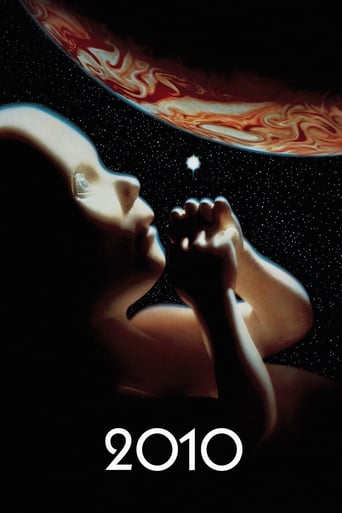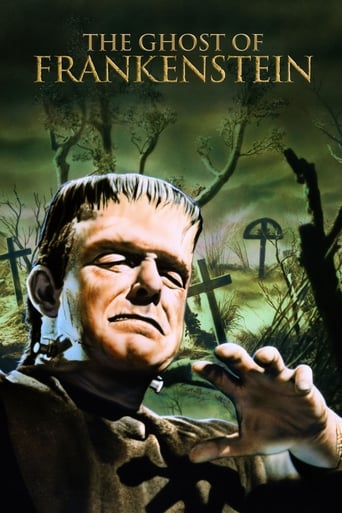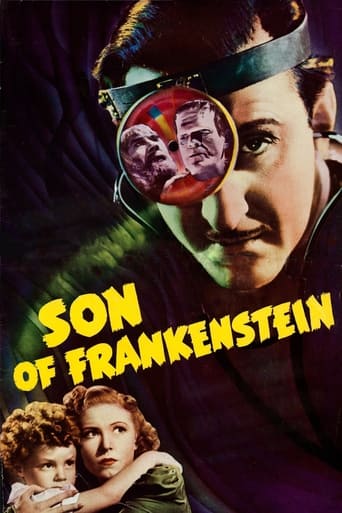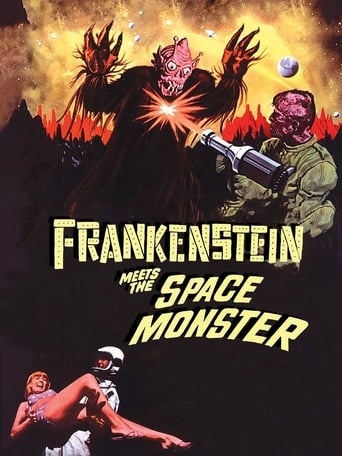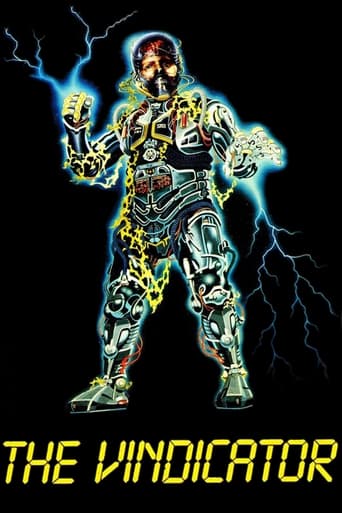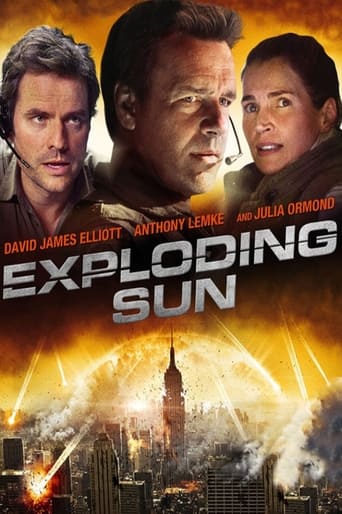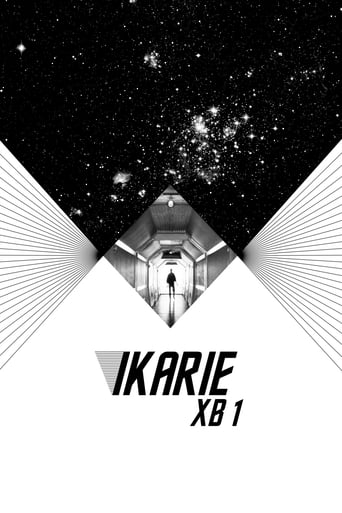
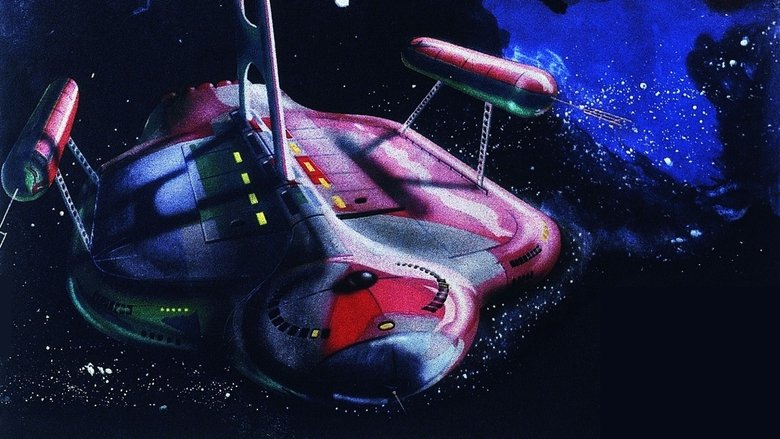
Ikarie XB 1 (1963)
The year is 2163. Starship Ikaria XB 1 embarks on a mission deep into space in search of alien life. During their perilous journey the crew confront the effects of a malignant dark star, the destructive legacy of the 20th century and, ultimately, the limits of their own sanity.
Watch Trailer
Cast
Similar titles
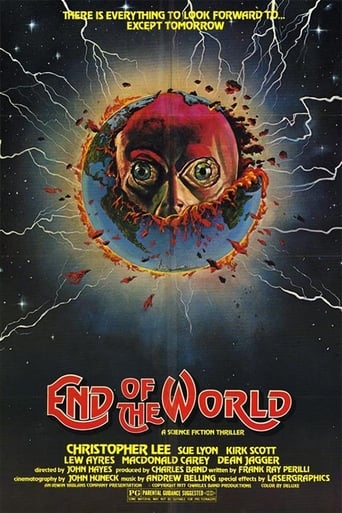
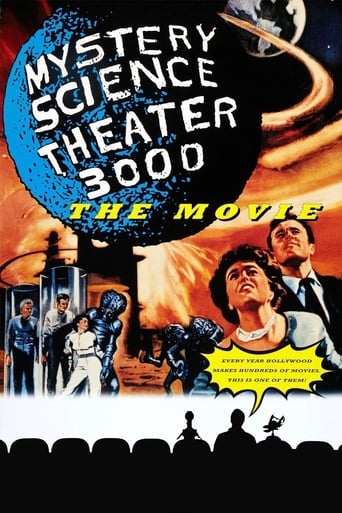
Reviews
One of my all time favorites.
Better Late Then Never
I like movies that are aware of what they are selling... without [any] greater aspirations than to make people laugh and that's it.
I cannot think of one single thing that I would change about this film. The acting is incomparable, the directing deft, and the writing poignantly brilliant.
This czech scifi made in 1963 is surprisingly fresh compared to most films within the scifi genre.The story of a multinational crew heading to unknown planet and along its path has to deal with many dangerous situations, has to be one of the most used story lines in scifi.Even though we've seen so many times this film uses a very lowkey, socialrealistic approach. More reminiscent of latter efforts like Alien (1979), Silent Running (1972), Outland (1981).This film portrays the crew and its members, struggling with everyday problems. Like childbirth, parties, relationships in space etc.There is also the fact that this film was made during communist rule in Czechoslovakia which might explain the lack of glamorous, action filled scenes. In fact the films hints that decadent, capitalistic society is doomed to fail.But there is also hints that the communistic state might contain flaws as well.Todays audience might be disapproving against the sometimes slow, socialrealistic tone/style of the film but I for one found it quite refreshing.Well-made scifi films without action, ridiculous high tempo, is hard to come by, and I hope more people will see this film.
Still relatively unfamiliar to western audiences, Ikarie XB 1 is an example of east European science fiction cinema on a fairly ambitious scale deserving of wider appreciation. Usually it's been only seen in a butchered edition created Stateside - duly shorn of a plot strand, dubbed with a different ending, with a dumb title.With the benefit of hindsight, a lot of the original seems familiar. With its clean interior ship design, crew neck uniforms all round, glide doors, shiny deck flooring as well as a 15-year mission to seek out new life, Ikarie may have given later pause for thought for a certain Gene Roddenberry. Genre fans will also note that, during the first big set piece, the crew are startled by an unexpected alarm and deviate from their mission to investigate a derelict spacecraft - events which end with a nuclear detonation in space. Add to this the changes wrought by the American bastardisation of Voyage To The End Of The Universe, that included an ending which anticipates Planet of the Apes, as well as its possible inspiration to Kubrick when planning 2001, and Ikarie certainly offers much of interest. Not to mention its own borrowings eg Ikarie's robot Patrick, inspired by Forbidden Planet (1956)Polák's was also responsible for an intriguing Nazi time travelling movie, with a small cult on its own account, Tomorrow I'll Wake Up And Scald Myself With Tea, made in the late 1970s. Less idiosyncratic than this, one imagines, Ikarie is much more serious in tone, set mostly aboard a roomy spacecraft, crewed by 40, dispatched to discover if there is any life on Alpha Centauri. A feeling of worthwhile isolation permeates this journey, with none of the trivial, trials and stresses one expects from space dramas made closer to home at this time, where mad scientists lurk, robots lumber threateningly or spacewomen defer to their mates. Missing too is the pseudo technical claptrap which lumbers much American SF, then or now. Ikarie's hardware exists mainly in the background, without need of explanation. The film expects us to take its conspicuous 22nd century advances just as seen, being concerned more with sociology than technology.Ikarie features a harmonious society in miniature, shown in a series of interactions aboard, even down to the calm acceptance of on board pregnancy - an adult theme incidentally completely excised in the American version. In such an hospitable environment, even the mad can be talked round without violence, as in the case of Michael (Otto Lackovic) who, affected by radiation and in a disastrous manoeuvre, wants to turn the ship back to Earth. That the only real threat the crew face is an external one is significant, and also primes the dramatic moment that begins the narrative. A flash-forward to when (infected by the same source, as we learn later), one of the crew is wandering, bewildered and aggressive, through the ship. "Earth is gone," he says. "Earth never existed." But he's not beyond help from his peers. Here the deluded or mad in space are not assumed lost, such as we might see in such recent American films as Event Horizon, but taken back and with promise of cure at that.Critics have contrasted these shipboard mores to the signs of capitalist degeneracy confronting those who board the 'Tornado', the derelict space station from 1987 unexpectedly encountered en route. Here, amidst the dark clutter of its interior, are found signs of gambling and money, coded elements of capitalist speculation, just as fatal as the death gas and nuclear warheads also there. For those who explore it, the Tornado reflects a place thought left behind, both geographically and politically. "We have discovered the 20th century," says one dismayed crewman. The determined self destruction encountered by those who board the derelict recalls one of TV's original Star Trek shows, and those found died as result of a selfish fight for survival. The signs of a corrupt political system fall exposed with as much horror as does (in a notable moment) the skin off the Tornado captain's face.This, and then the debilitating effects of rays that emanate from a hitherto unknown black star are the two principal threats facing the crew. How they finally overcome this last hurdle is part of the end of the quest. Without giving too much away, it is sufficient to say that the close of the film, the ship's long anticipated arrival at Alpha Centauri's 'white planet', brings a sequence both uplifting and brief, carrying over the theme of mutually beneficial cooperation. But viewers today may find less interest in the ending than the scenes that have preceded it. It's the Ikarie crew's social or dutiful pairings, even to the point of bringing each other flowers, or taking showers together, which lay at the heart of the film, rather than any encounter of a new civilisation and the socialist message entailed. Whilst in basic narrative terms the 'white planet' brings closure, our attentions have for long been focused elsewhere, in scenes such as the notable dance sequence. Through the hypnotic rhythms of Zdenek Liska's striking score, the astronauts take part in something akin to a weird 22nd century disco, their slow somnambulistic movements reassuring while also slightly disturbing. Reassuring, as we can see the crew reacting together as one social unit, even after the inevitable trials of months in space; disturbing because it is all so emotionless and controlled. Such ambiguous group occasions beg questions we really want answered. Are they really happy? Or does the Earth we thought we recognised in them no longer exist?The Czech originated disc I have seen offers a splendid widescreen transfer of the movie with English subtitles. Most of the extras are unfortunately not subtitled, but there's a chance to see some sample scenes from the American International version, to give an idea of how the original was changed as well as a stills gallery.
I just saw a gorgeous, widescreen, subtitled print of "Ikarie XB 1", also known as "Voyage To The End of the Universe", at Boston's Museum of Fine Arts. The print, restored by the Czech studio that originally released it, is in black and white, and was obviously shot that way. Its complete running time is listed in the program notes as 84 minutes, though it may have been a few minutes longer. (I should have checked my watch). Like several others who've commented on this, I first saw this movie as a kid when AIP released a dubbed version in the 60s. Its definitely not a kiddie movie, and is still quite impressive for its effects and production design, as well as its intelligent story.
This is an intriguing Czech science fiction film from the early 60's. It's pretty much unknown in the U.S (American - International Pictures dubbed it into English and released it as "Voyage to the End of the Universe" in 1964; it's been seen here only rarely since then).The movie depicts a group of space travelers on a seemingly endless journey to a new planet. They encounter many traps and dangers along the way (including a derelict spacecraft and a mysterious nebula) but the greatest conflict seems to be psychological: namely, the titanic ambition of a 15-year, trans-galactic voyage pitted against the fragility of the human mind and the relative insignificance of human lives.The interior sets are lavish -- certainly on a par with "Forbidden Planet" and perhaps even "2001". The level of detail in the spaceship interiors is admirable, and the same can be said for the smartly designed spacesuits."Ikarie XB 1" stumbles badly, though, when it comes to the exterior effects work. The spacecraft models are too small to provide much detail, and seem to be propelled through space by dark-colored string. As a result the transitions between interior and exterior shots are somewhat jarring.All the same, this movie is a very interesting example of mid-century science fiction. It deserves a much wider audience, and it is to be hoped that a restored, subtitled print will one day make the rounds in American art houses. Cross your fingers.



